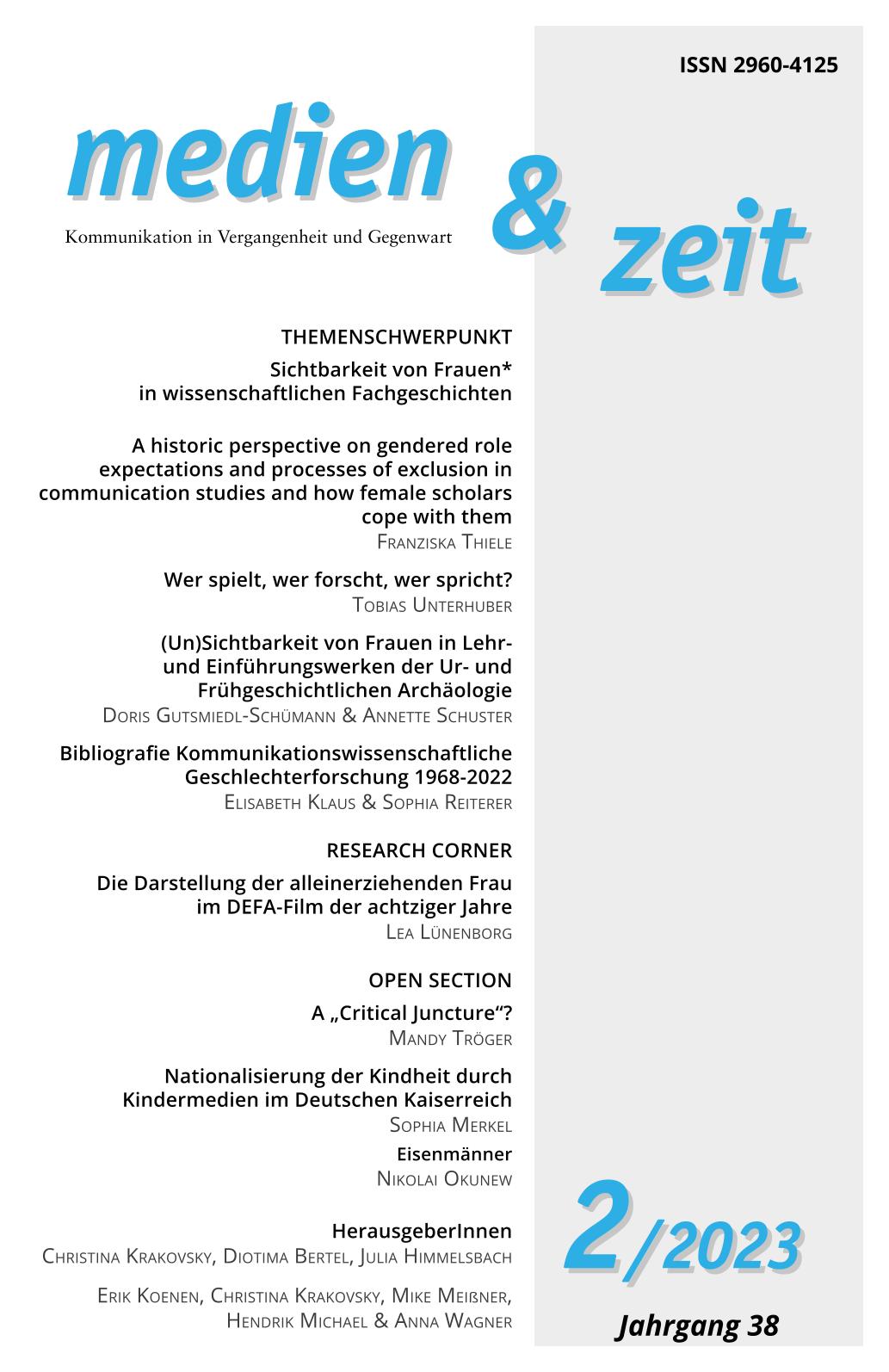Bibliografie Kommunikationswissenschaftliche Geschlechterforschung 1968-2022
Keywords:
Bibliography, gender studies in communication studies, media and communication studies, gender studiesAbstract
The bibliography Kommunikationswissenschaftliche Geschlechterforschung 1968-2022 was initially published in 2002 and has been regularly updated since. It includes monographs, edited volumes, and special journal issues in the field of Gender Media Studies published in the German language. The bibliography offers a chronological overview of the field’s evolution and serves as an introduction to the themes and issues explored within Gender Media Studies. At the same time, it displays shifts in the research on gender in Communication and Media Studies in German-speaking countries. The initial focus on women as a discriminated group in media was broadened by relational and intersectional perspectives, including men, masculinities, and queer viewpoints. The early work on gender stereotypes in media has been substantially supplemented by publications covering journalism, reception studies, public sphere theory and other areas of media and communication. The bibliography testifies to the significant growth and diversification in Gender Media Studies, with the emergence of key theoretical approaches and comprehensive handbooks. Due to the digitalization of society both media production and scholarly research have changed so profoundly, that the bibliography concludes its updates. Online resources are now easily available and articles, often published in English, have become more dominant for the distribution of knowledge.
Additional Files
Published
How to Cite
License
Copyright (c) 2024 Elisabeth Klaus, Sophia Reiterer

This work is licensed under a Creative Commons Attribution-NonCommercial-NoDerivatives 4.0 International License.
Public access to articles in the journal medien & zeit is free of charge, at no charge to authors, and is available to all readers under the Creative Commons Attribution-NonCommercial-NoDerivatives 4.0 license. The rights for the contributions belong to the respective authors (no apc).



